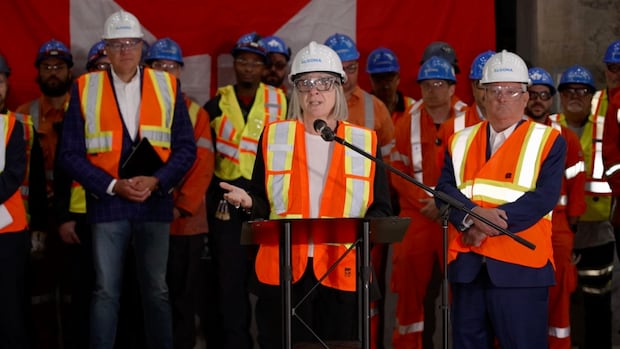Ontario Government Takes Over School Boards: Concerns Over Parent Input
The Ontario government's decision to take over four school boards this year has sparked controversy, with critics arguing it could diminish parents' influence on their children's education. This move follows similar actions in other provinces, raising questions about the future of elected trustees and community representation in education.
Parent Concerns and Community Impact
Jennifer Volk, a Toronto parent, is concerned about the impact of the government's decision. She worries that the removal of elected trustees severs a vital link between school boards and communities. Trustees play a crucial role not only in addressing individual parental concerns but also in advocating for the unique needs of the communities they represent.
Volk emphasizes the different needs across communities and how trustees advocate on their behalf. For example, trustees helped maintain access to school pools, ensuring children could learn to swim.
The Province's Rationale and Actions
In June, the province appointed supervisors to oversee the Toronto District School Board (TDSB), Toronto Catholic District School Board, Ottawa-Carleton District School Board, and Dufferin-Peel Catholic District School Board. These interventions came after years of deficits, which trustees attribute to underfunding and restrictions on financial management. Investigations did not reveal serious mismanagement, but the accumulated deficits allowed the province to intervene under the Education Act. The Thames Valley District School Board was also placed under supervision earlier in the year, leading to the removal of all trustees at these boards.
Minister Calandra's Perspective and Future Governance
Education Minister Paul Calandra has stated that the province's decisions on board governance and trustee reinstatement will be announced by the end of the year. Supervisors will remain in charge until budgets are balanced and long-term sustainability is ensured. Mr. Calandra emphasizes a need to evaluate the current governance model and gather input from across the province, stating, “I want to hear not only from the areas where the supervisors are in place but from all across the province – does the model that we currently have effectively allow for governance of our school boards?”
Provincial Trends and Potential Consequences
Several provinces have eliminated or attempted to eliminate school boards or elected trustees. Nova Scotia eliminated elected trustees in 2018, while Manitoba scrapped similar plans after parent opposition in 2021. Newfoundland and Labrador replaced elected trustees with appointed ones in 2013, and Prince Edward Island reinstated elected trustees in 2022 after public demand. Critics fear that eliminating trustees in Ontario will stifle democratic processes, reduce parent input, and ignore community concerns. Alan Campbell, president of the Canadian School Boards Association, suggests that parental opposition may grow as the school year progresses and the impact of losing access to trustees becomes clearer.
Expert Opinions on the Impact of Eliminating Trustees
Sachin Maharaj, an assistant professor at the University of Ottawa, who studied the situation in Nova Scotia, notes that eliminating trustees can lead to more centralized control and reduced responsiveness to community members. He argues that parent councils and community groups may have less input and a weaker voice without a local trustee to facilitate feedback.
Gerald Galway, a professor of education at Memorial University, stresses that trustees' community ties enable them to effectively help constituents, stating: “Being elected and being out there in the community, they do have that connection with the public, and it’s an important connection. In their ideal form school boards should be democratically elected people, trustees who embody community values.”
Suzy Hansen, a former trustee in Nova Scotia, highlights the difficulty for parents to voice concerns after the removal of trustees.
Financial Context and Funding Models
Prior to 1998, Ontario school boards could raise funds through local property taxes. Now, over 90% of operating revenue comes from the province. The Ontario Public School Boards Association estimates that per-student funding is below 2018-2019 levels when adjusted for inflation. Data shows that 25 of Ontario’s 72 school boards project deficits for this school year. Neethan Shan, chair of the TDSB, attributes the widespread deficits to structural funding issues rather than trustee mismanagement.
Funding Investment and Potential Solutions
The province has invested $30.3 billion in core education for this school year, up from $28.6 billion. Minister Calandra is considering whether the current funding formula disadvantages boards under supervision and is also considering lifting the school closure moratorium. Investigations have shown enrolment declines in some districts, leading to underutilized pupil places and increased operational costs. Former Premier Kathleen Wynne clarifies that the moratorium was never intended as a permanent solution.
Concerns for the Future
Eliminating trustees could sever important community ties and hinder community input on education. Ms. Volk worries that this change could be permanent: “Unfortunately, it’s one of those things that if it’s gone I don’t know if you ever get it back.”
 Visit the website
Visit the website



